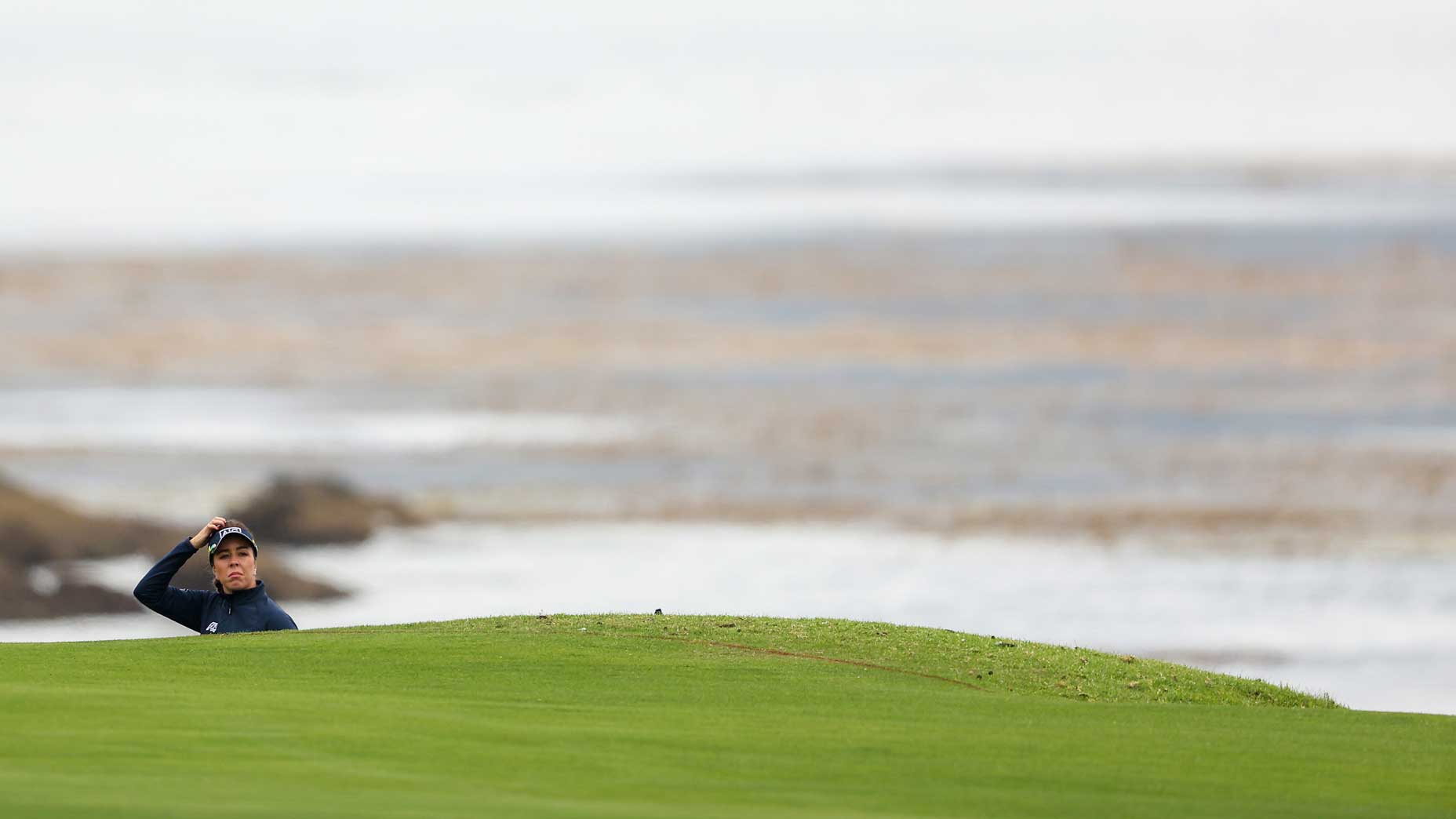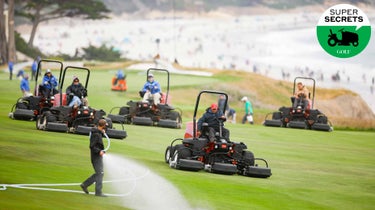
Georgia Hall on Friday on the par-5 18th hole at Pebble Beach.
Getty Images
Bailey Tardy, among your contenders at the U.S. Women’s Open, was home in two on the par-5 6th at Pebble Beach on Thursday, then again on Friday. Both times, she eagled. It was exciting. It was momentous.
It was a unicorn.
As for the culprit behind the rarity?
“It’s annoying,” pro Mel Reid said.
“It’s frustrating.”
“It’s a shame.”
And there was this thought, from longtime analyst Brandel Chamblee.
“It does rob the LPGA tour of a lot of its excitement.”
This week, of course, is maybe the week for women’s pro golf, which is not only playing a national championship, but determining a winner at a grand ole gem and showcasing it all across multiple televised hours. All good things.
It’s just that a part of the show may, very literally, come up short, as outlined by Reid and Chamblee on Thursday night on Golf Channel’s Live From show.
“I’ve been trying to have this argument with the LPGA for a few years now, and so have a few of the other players,” Reid said.
“In my personal opinion, I think par-5s are far too long.”
Let’s look at the numbers.
Pebble has four par-5s — the 2nd hole (which played 504 yards on Thursday), the aforementioned 6th (495 yards), the 14th (543 yards) and the 18th (526 yards) — though Tardy was the only player among the 156 entered to eagle one during the first round. On Live From, Chamblee reported that just 11 players found a par-5 green in two shots, out of 624 opportunities.
The effect? For one, scoring suffers. On Thursday, the average score on the par-72 was 75.52, though numbers are typically higher at major championships. Then there’s season-long average, which Chamblee and Reid also shared on Live From — across the past six seasons on the LPGA, just under 10 players have averaged below 70, while just under 40 have done so on the men’s PGA Tour.
And that led Chamblee to his opinion from this story’s start.
“You just think about the contrast of the men’s game,” he said on Live From, “and often they’re driving it down there and they’re hitting exciting shots with mid-irons, long irons, getting on the 6th green. …
“It robs the game of some of the excitement. These par-5s are meant to be exciting. They’re meant to have a shot at the 18th green in two. Not a single player today hit the 18th green in two. … You go back to the major championships that are played here, and these are some of the most exciting moments when players have a chance to go for par-5s in two.”
So what’s the solution?
Chamblee thinks it’s about 1,100 yards.
The women do play from different tees from the men — at the 2019 Men’s U.S. Open, the yardage was 7,075 at a par of 71, while Thursday’s was 6,491. But on Live From, Chamblee and Reid argued that difference wasn’t enough, and Chamblee had a formula.
The difference between the longest hitter off the tee on the PGA Tour (Rory McIlroy) and the longest on the LPGA (Xiaowen Yin) is about 40 yards, as is the difference between the shortest (Brian Stuard and Julieta Granada) — so 14 tee boxes should be that farther up (560 yards total). Then there are approach shots and the par-3s, which Chamblee believed should have a difference of 30 yards (540 yards).
For the 1,100-yard total. But on Live From, Chamblee and Reid noted that the difference is usually about 600 yards (7,200 yards on the PGA Tour and 6,600 on the LPGA).
We’ll end things here with Reid. And it’s here where we must point you in the direction of this story from Golfweek’s Beth Ann Nichols, who wonderfully and expansively reported on the subject in 2021.
“For me, I understand my game — I know that I’m a bit of a streaky player; I don’t have the best short game; I’m not the best wedge player in the world; but what I do have is I’m athletic and I love to work out, and so therefore, I can kind of be one of the longer hitters on tour,” Reid said on Live From. “And the problem is, the way that we set up golf courses on the LPGA, is that it almost dilutes that for me and it brings me back into the middle of the pack because I’m just hitting the same shot as everybody else again. This really is a very heated topic among players, that it’s very rare that we get to a tournament and the players can reach par-5s in two.
“As a player, it’s annoying because I work really hard and I’m one of the longer hitters on tour — I’m 13th this year in driving distance — and I can’t use that to any advantage; it kind of brings me back to my wedge game again.”











